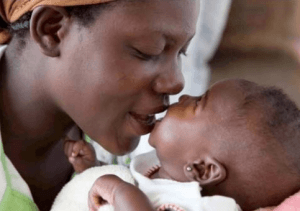Philips to utilize findings on breastfeeding in urban Africa
 Philips Africa has unveiled the results of its latest research focused on supporting new mothers in their breastfeeding journey, to mark the World Breastfeeding Week, which started from August 1 to August 7.
Philips Africa has unveiled the results of its latest research focused on supporting new mothers in their breastfeeding journey, to mark the World Breastfeeding Week, which started from August 1 to August 7.
The study, which surveyed more than 400 working mothers in Accra, Ghana and Nairobi, Kenya, identified key barriers for breastfeeding including unsupportive work environments and cultural influences.
A statement issued in Accra by Radhika Choksey, Philips Group Communications, Africa said the report aimed to uncover the key breastfeeding obstacles for working women in both Ghana and Kenya in order to identify opportunities to support and empower them.
It said limited early initiation of breastfeeding, unsupportive work environments, and cultural influences, lack of access to breast milk expression facilities, poor day-care facilities and impeding beliefs were among the challenges identified in the research.
The statement said across the board, it was found that mothers knew that breastfeeding was the right thing to do, yet the ability to balance work and motherhood in a busy African city was hard.
It said 52 per cent of the women surveyed had to go back to work within three months, making breastfeeding.
“In addition, pressure to work long days in order to make a sufficient income, stressful lives and no space to express milk in the workplace, are all contributing factors to diminished breastfeeding rates,” it added.
It said although 69 per cent of women surveyed knew the importance of expressing breast milk if unable to breastfeed directly, the biggest barriers for new mothers wanting to express included lack of space to express comfortably, access to technology like breast pumps, cooling and sterilisation equipment and advice and coaching on the correct techniques to breastfeed.
The statement said Philips would utilize these findings to help countries, with the healthy development of their infant population.
Philips aimed to use its rich innovation heritage and baby feeding expertise through its extensive Philip Avent range to encourage and empower women to combine going to work with breastfeeding.
“No mother should need to choose between earning a living, and giving their child the health benefits that only breastfeeding can provide” Dr. Maarten van Herpen, Head of the Philip Africa Innovation Hub has said.
Commenting on the outcomes of the report, Leith Greenslade, a Vice Chair with the UN Special Envoy for Health, said: “The vast majority of the 400 Kenyan and Ghanaian mothers surveyed know that breastfeeding is best, and yet it is a minority of mothers in both countries, who exclusively breastfeed.
She said probing deeper revealed that a raft of barriers to breastfeeding, most common among them the need to return to work.
She said the Philips’ report shines a light onto the widening chasm between breastfeeding rhetoric and reality for these working mothers.
Source: GNA
